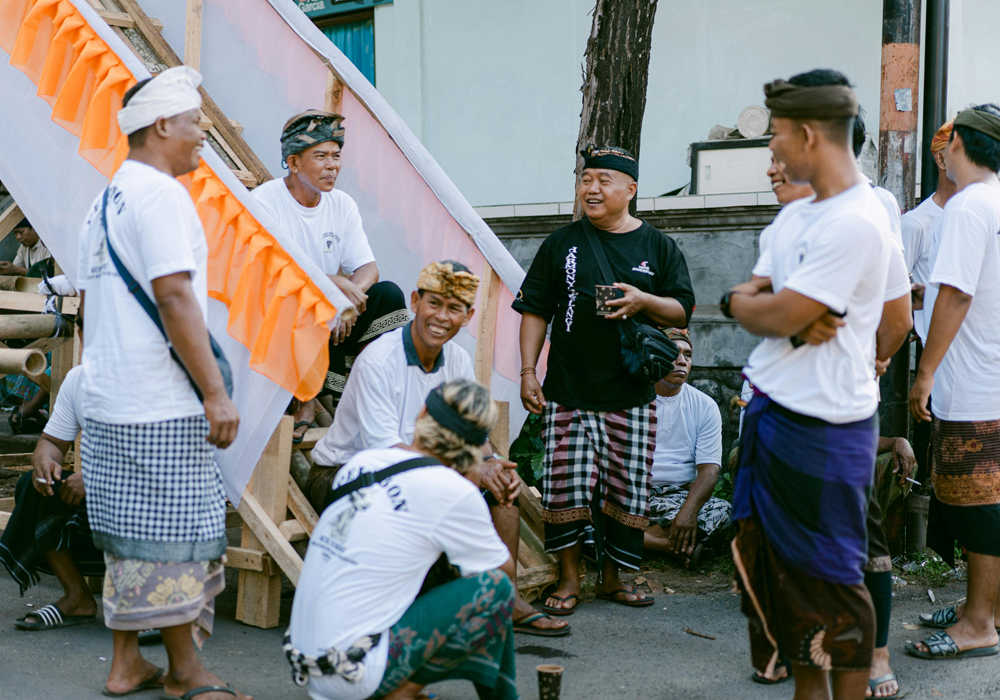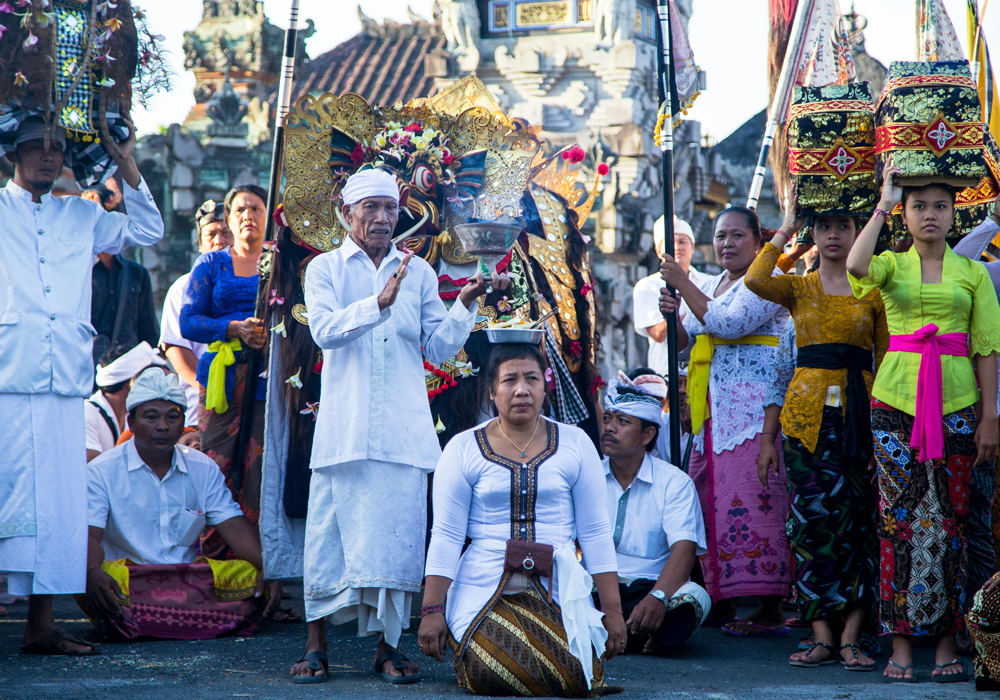Indonesian Etiquette. As a foreigner stepping onto the vibrant shores of Indonesia, particularly in the current context of Bali, embracing local etiquette is not merely about politeness; it’s about fostering genuine connections and showing respect for a rich and deeply spiritual culture.
While Bali, a predominantly Hindu island, has its unique nuances, many of the foundational principles of Indonesian etiquette apply universally across the archipelago.
The Gentle Handshake and Humble Greeting
Upon meeting an Indonesian, a gentle handshake is the standard greeting, often accompanied by a soft smile and direct eye contact. Unlike the firm grips common in some Western cultures, an overly strong handshake can be perceived as aggressive.
After the handshake, it’s customary for Indonesians to bring their hand to their chest, a subtle yet profound gesture signifying sincerity and respect. As a foreigner, reciprocating this gesture will be greatly appreciated. When addressing individuals, particularly those older than you or in positions of authority, using titles such as “Bapak” (Mr.) for men and “Ibu” (Ms.) for women, followed by their first name, demonstrates deference.
For instance, “Bapak Wayan” or “Ibu Sri.” In more traditional or rural settings, particularly on Bali, you might observe younger individuals gently touching the back of an elder’s hand to their forehead – a deeply respectful “salim” – which, while not expected of foreigners, is a beautiful tradition to witness.
The Sacred Right Hand and the Unclean Left
Perhaps one of the most fundamental and pervasive rules of Indonesian etiquette revolves around the use of hands. The right hand is considered clean and sacred, used for virtually all social interactions.

This stems from cultural and religious beliefs where the left hand is traditionally used for personal hygiene. Therefore, it is imperative to always use your right hand when shaking hands, giving or receiving anything – be it money, a gift, food, or even a simple piece of paper.
When eating, even if using cutlery, try to ensure your right hand is the primary one interacting with your food. Similarly, when pointing at something or someone, use your right thumb, not your index finger, as pointing with the index finger can be considered rude. This seemingly small detail carries significant cultural weight and adhering to it will prevent unintentional offense.
Modesty in Attire: A Reflection of Respect
Indonesia, with its diverse religious landscape, values modesty in dress. While Bali’s tourist hubs might see more relaxed attire, it is always advisable to err on the side of caution and dress respectfully, especially when venturing outside resort areas, visiting temples, or entering local villages.
For women, this generally means covering your shoulders, chest, and knees. Avoid overly revealing or tight-fitting clothing. For men, long pants and collared shirts are preferred over shorts and tank tops, particularly in more formal or traditional settings. When visiting religious sites such as Hindu temples in Bali or mosques, specific dress codes are often enforced.
You will almost certainly be required to remove your shoes before entering. At temples, you’ll be offered a sarong (a traditional wrapped skirt) and a sash to wear, even if you are already dressed modestly. Women visiting mosques will also need a head covering, which is often provided. Observing these practices not only shows respect for the sacredness of the space but also for the beliefs of the local people.
The Art of Indirect Communication and Preserving Harmony
Indonesian communication often favors indirectness, prioritizing harmony and avoiding confrontation above all else. A direct “no” can be considered impolite, and a “maybe” or “I’ll try” might subtly convey a refusal.

Be patient, observe body language, and learn to read between the lines. Loud voices, aggressive tones, or public displays of anger are generally frowned upon and can be counterproductive in resolving any issues. Instead, maintain a calm and polite demeanor, even in challenging situations.
Humor is often used to defuse tension, and a genuine smile can go a long way. Remember that preserving “muka” (face) – both your own and that of the other person – is crucial. This means avoiding public criticism or putting someone in an awkward position.
Dining Etiquette: A Feast of Fellowship
When invited to an Indonesian home, accepting food and drink is paramount. Refusing hospitality can be deeply offensive, as it implies a rejection of the host’s generosity. You don’t have to finish everything on your plate, but at least try a little of each dish offered.
It’s polite to wait for your host or the most senior person at the table to begin eating before you start. In many traditional settings, especially when enjoying dishes like Padang food, eating with your right hand is common and expected. If you prefer, it is perfectly acceptable to ask for utensils.
When you’ve finished eating, it’s considered polite to leave a small amount of food on your plate to signal that you are full, rather than cleaning your plate entirely, which could suggest you are still hungry. If dining at a restaurant, the person who extended the invitation is usually expected to pay the bill. A small burp after a meal is generally not considered impolite; it can even be a sign of satisfaction.
Sacred Spaces and Reverent Gestures
Indonesia is a deeply spiritual country, and showing respect for religious practices is non-negotiable. When in Bali, you will encounter numerous Hindu temples and ceremonies. Always be mindful of your surroundings. Avoid walking in front of people who are praying or performing religious rituals.
If you encounter an offering (canang sari) on the ground, step around it, not over it. Never touch religious artifacts or statues without explicit permission. When visiting a holy place, keep your voice down, and avoid taking photos during sacred moments unless you have been given permission.
During religious holidays, like Nyepi (Day of Silence) in Bali, respect the local customs by adhering to the restrictions, which typically include no noise, no lights, and staying indoors.
The Feet: Lowest Point, Least Respect
Just as the head is considered sacred, the feet are viewed as the lowest and least clean part of the body. Therefore, it is highly disrespectful to point the soles of your feet at someone, at a religious object, or even at a picture of a revered figure.
When sitting, avoid resting your feet on furniture, and try not to stretch your legs out in a way that points your feet towards others. If you are sitting on the floor, tuck your feet beneath you or to the side.
When entering someone’s home, or even some shops and warungs (small local eateries), always remove your shoes before stepping inside. Look for a pile of shoes at the entrance as a clear indication.
General Conduct: Patience and Politeness are Keys
Patience is a virtue in Indonesia, where time is often flexible, affectionately known as “jam karet” or “rubber time.” Be prepared for potential delays in transportation or appointments, and approach them with a relaxed attitude.
Public displays of anger, shouting, or excessive displays of affection are generally frowned upon. Keep your voice down in public spaces and always maintain a polite demeanor, even if you feel frustrated.
Finally, and crucially, Indonesia has extremely strict drug laws, with severe penalties, including the death penalty. Do not engage with drugs in any capacity.
By understanding and observing these fundamental aspects of Indonesian etiquette, you will not only avoid unintentional offense but also open doors to richer, more meaningful interactions with the warm and welcoming people of this captivating archipelago.
Your efforts to adapt will be genuinely appreciated, leaving you with lasting memories of a respectful and harmonious cultural exchange.
